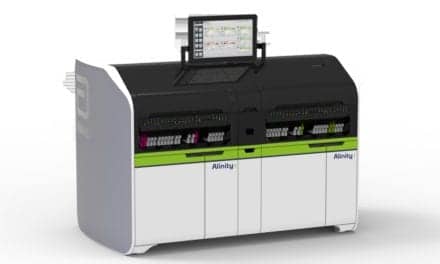VENTANA HER2 (4B5) test is now CE-IVDR approved to identify HER2-ultralow breast cancer and HER2-positive biliary tract cancer patients.
Roche has received CE IVDR approval for two label expansions of its VENTANA HER2 (4B5) Rabbit Monoclonal Primary Antibody RxDx assay, marking advances in companion diagnostic testing for oncology applications.
The expanded approvals position the VENTANA HER2 (4B5) test as the first and only companion diagnostic approved to identify patients with hormone receptor-positive metastatic breast cancer that are HER2-ultralow. These patients may be eligible for treatment with ENHERTU (trastuzumab deruxtecan), an HER2-directed antibody drug conjugate developed by Daiichi Sankyo and AstraZeneca.
Additionally, the test becomes the first and only companion diagnostic to assess HER2-positive status in biliary tract cancer patients with an immunohistochemistry score of 3+ who may be eligible for treatment with Jazz Pharmaceuticals’ ZIIHERA (zanidatamab-hrii).
“This is about creating new options for patients facing some of the toughest cancers,” says Jill German, head of pathology lab at Roche Diagnostics, in a release. “Our understanding of HER2 is rapidly evolving, and this expanded approval ensures our diagnostics are leading the way.”
Addressing HER2-Ultralow Classification
The approval addresses an emerging patient population in breast cancer diagnostics. HER2 interpretation continues to evolve beyond traditional “positive” or “negative” classifications, with the new HER2-ultralow designation referring to patients with very low levels of HER2 expression, even lower than the existing HER2-low category.
Approximately 20% to 25% of hormone receptor-positive, HER2-negative breast cancer patients may be considered HER2-ultralow, according to Roche. In Europe, more than 564,000 people will be diagnosed with breast cancer this year, with more than 145,000 estimated deaths from the disease.
The VENTANA HER2 (4B5) test was used in the DESTINY-Breast06 trial, which demonstrated significant improvement in progression-free survival with ENHERTU compared to standard chemotherapy in patients with HER2-low and HER2-ultralow metastatic breast cancer.
Biliary Tract Cancer Applications
For biliary tract cancer applications, the diagnostic addresses an unmet clinical need, according to a release from the company. Biliary tract cancer incidence and mortality rates have been increasing in Europe over recent decades, with patients often diagnosed at advanced stages and having limited treatment options.
The VENTANA HER2 (4B5) test will identify biliary tract cancer patients with HER2-positive status who may be eligible for ZIIHERA treatment, providing laboratories with a standardized approach to companion diagnostic testing for this challenging cancer type.
Technical Specifications and Laboratory Impact
The VENTANA HER2 (4B5) assay operates on the fully automated VENTANA BenchMark slide staining instrument, standardizing all immunohistochemistry processes from baking through staining. The automation reduces the possibility of human error and minimizes variability from individual reagent dilution and other processes found in manual and semi-automated IHC methods.
The HER2 (4B5) clone achieves consistently high proficiency assessment scores compared to other clones and demonstrates high concordance with HER2 fluorescence in situ hybridization testing, according to the company.
Previously, the test was indicated to identify certain breast cancer patients eligible for HER2-targeted treatment with Herceptin, KADCYLA, PERJETA, or ENHERTU, and gastric cancer patients eligible for Herceptin treatment.
The expanded indications provide laboratories with additional companion diagnostic capabilities for precision oncology applications, supporting treatment decisions across multiple cancer types and therapeutic approaches.





